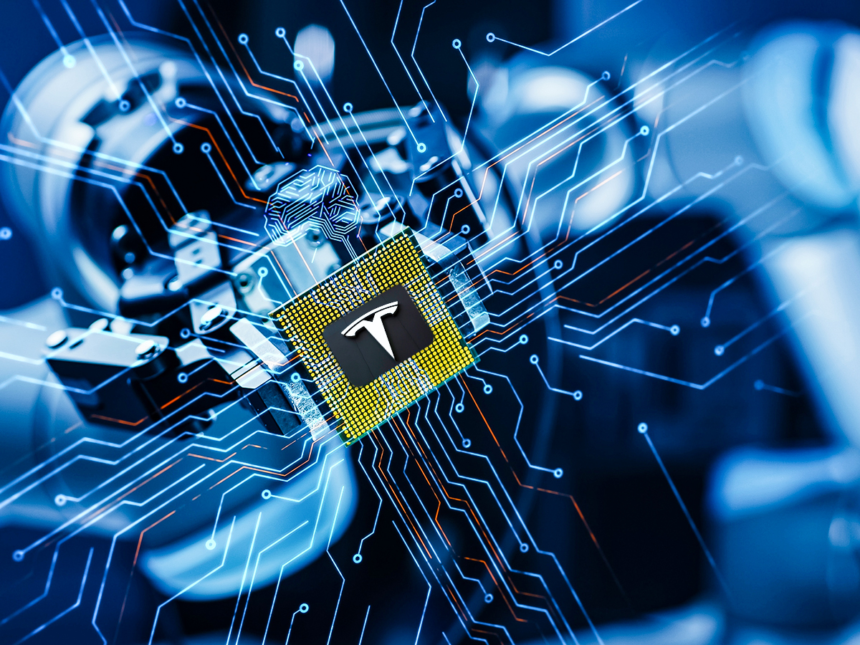- Tesla develops Dojo supercomputer to train self-driving AI.
- Elon Musk positions Dojo as crucial for achieving full autonomy.
- Tesla invests heavily in Dojo amid slowing EV sales.
Musk’s Silicon sorcery
Tesla’s journey into the realm of artificial intelligence took a giant leap with the introduction of Dojo, a custom-built supercomputer designed to train the company’s Full Self-Driving (FSD) neural networks.
First teased by Elon Musk in 2019, Dojo has become a cornerstone of Tesla’s ambitious plan to transform from an automaker into an AI powerhouse.

The robo-driver’s gym
As Tesla grapples with slowing EV sales, Dojo represents a potential game-changer. The supercomputer aims to process vast amounts of data from Tesla’s fleet, promising to bridge the gap between current driver-assistance features and true autonomy.
Musk has consistently hyped Dojo’s capabilities, positioning it as crucial for achieving full self-driving technology.
Since its initial mention, Dojo has evolved from a concept to a tangible project. Tesla officially announced the supercomputer at its first AI Day in 2021, introducing the D1 chip. By 2023, the company reported that Dojo was online and running tasks in data centers.

As Tesla ramps up its AI efforts, Dojo’s development continues to accelerate, with plans for multiple generations and significant investments in the pipeline.









